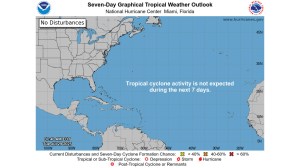‘The life and breath of communities’: Hospital leaders say Medicaid expansion still needed
Published 3:00 pm Thursday, February 1, 2024

- PHOTO BY ERIC SHELTON/MISSISSIPPI TODAY Gov. Tate Reeves announces his plans for a series of Medicaid reimbursement reforms during a press conference at the Walter Sillers Building in Jackson, on Sept. 21, 2023.
Gov. Tate Reeves’ Medicaid payment changes, pitched during the eleventh-hour of a heated reelection campaign and his only major health plan during his first four years as governor, delivered $658.2 million to hospitals in January.
Hospital leaders say the influx of federal money is a lifeline, but it’s not enough to forgo Medicaid expansion – a long-term solution that would insure hundreds of thousands of working poor people in one of the country’s sickest states.
Quentin Whitwell owns four hospitals in rural Mississippi. He knows intimately the struggles they face. While the extra federal money Reeves secured is helpful, he said, expansion would go further.
Trending
“There is no reason to leave funding on the table to assist rural hospitals that are the life and breath of communities,” he said.
As Mississippi hospitals continue to struggle, expanding Medicaid to cover the working poor has been hotly contested over the last decade, most openly during the last two gubernatorial elections. Reeves, as did two of his GOP predecessors, has remained steadfastly opposed, saying it would make Mississippians more reliant on “welfare.”
Medicaid expansion would increase the income threshold needed to qualify for Medicaid to 138% of the federal poverty level, meaning many more Mississippians would qualify for coverage. For a family of four, that would be an annual income of $43,056.
As it stands, low-income, working-class Mississippians who make just above the poverty level don’t qualify for Medicaid but also can’t afford insurance. Nearly one in five Mississippians is uninsured, contributing to the state’s abysmal public health metrics – such as the lowest life expectancy in the country.
Extensive research underlines the policy’s financial and health benefits, and a majority of Mississippians say they want Medicaid eligibility expanded, as it has been in 40 other states. Researchers estimate the policy would insure between 200,000 and 300,000 Mississippians, generate thousands of jobs, help struggling hospitals and bring billions of dollars into the state.
The money’s needed — one report estimates nearly half of the state’s rural hospitals are at risk of closure, largely due to losses related to caring for uninsured patients.
Trending
However, the governor and some other Republican leaders have remained staunchly against the policy.
Weeks before the November election, in which Reeves narrowly defeated Democrat Brandon Presley, the governor announced that the state had requested federal approval of changes to its Medicaid payment policies. The changes, Reeves claimed, would bring in nearly $700 million in total to the state’s hospitals.
Reeves’ plan relies on increased extra payments hospitals get for treating patients on Medicaid. It increases a “bed tax” on Mississippi hospitals, in exchange for them drawing down more in federal Medicaid payments. Hospitals and GOP leaders in the Legislature had pitched roughly the same plan the year before, but Reeves’ own Medicaid administration had told them it wouldn’t work.
At the September press conference announcing his plan, Reeves touted the reforms as an alternative to Medicaid expansion, which he referred to as increasing the state’s “welfare rolls.” He was flanked by various hospital leaders from across the state. Most were from hospitals that had recently left the state hospital association under political pressure after the association’s political action committee made a largee donation to Reeves’ pro-expansion opponent Presley.
Months after his announcement, half of Reeves’ plan has been approved and the bulk of the money has gone out.
And while hospital executives say the money will allow Mississippi hospitals that have been struggling for years to stay above water, the program does nothing to address the egregiously high number of uninsured, working-class Mississippians.
Lee McCall, chief executive officer of Neshoba General Hospital in Philadelphia, said his hospital loses more than $4 million a year on uncompensated care.
“These proceeds are going to help offset that … but it hasn’t done anything to expand access to coverage for Mississippians that are uninsured,” he said. “So yes, we’re still proponents of expansion, in whatever form it could come in, really to help out Mississippians, so that they can seek the care that they need.”
McCall said while he was thankful for the extra money, he acknowledged the governor’s plan gave more money to the state’s larger hospitals, rather than the ones struggling the most in rural parts of the state.
by Devna Bose, Sophia Paffenroth, Mississippi Today





